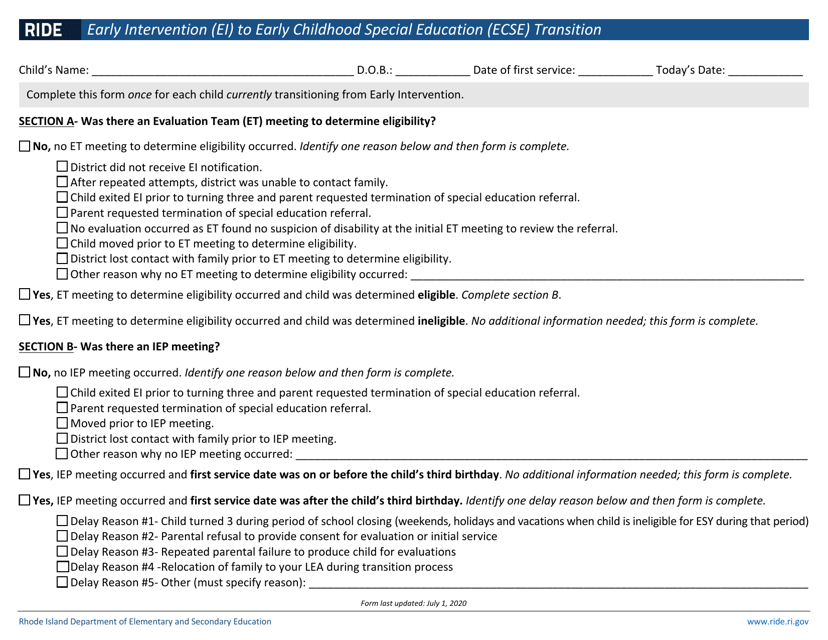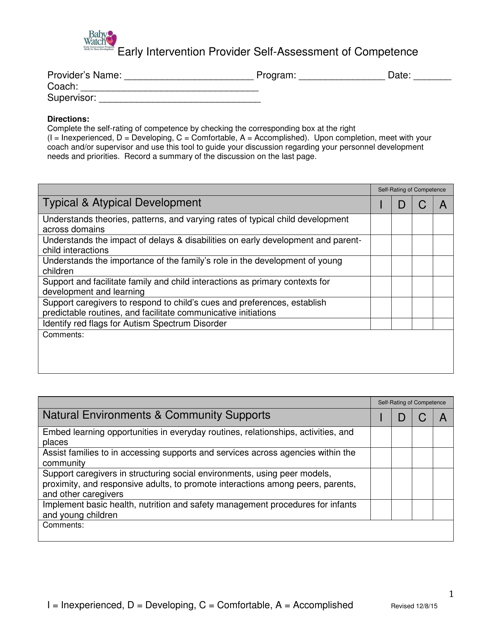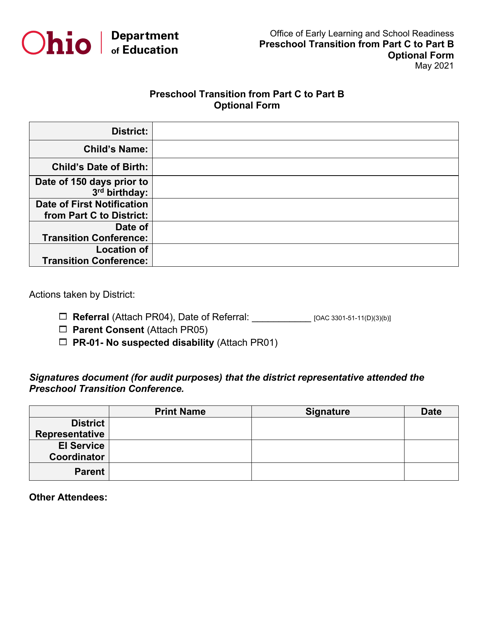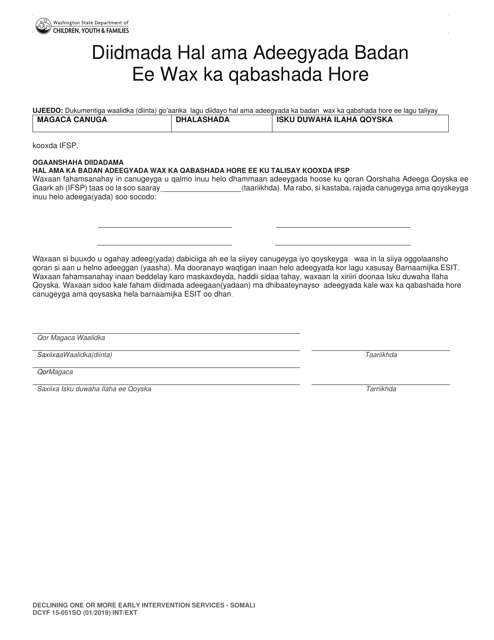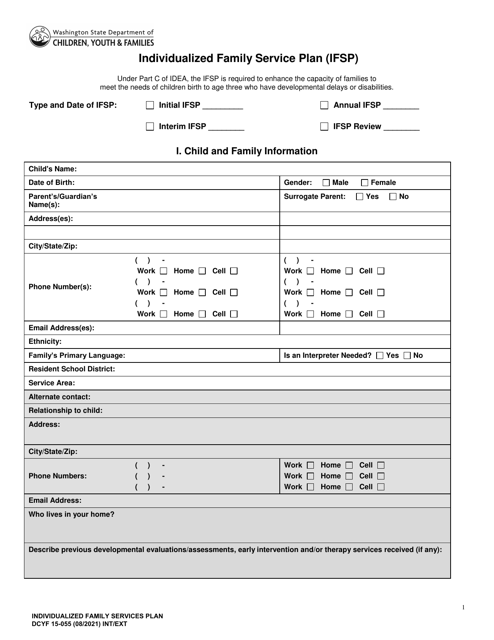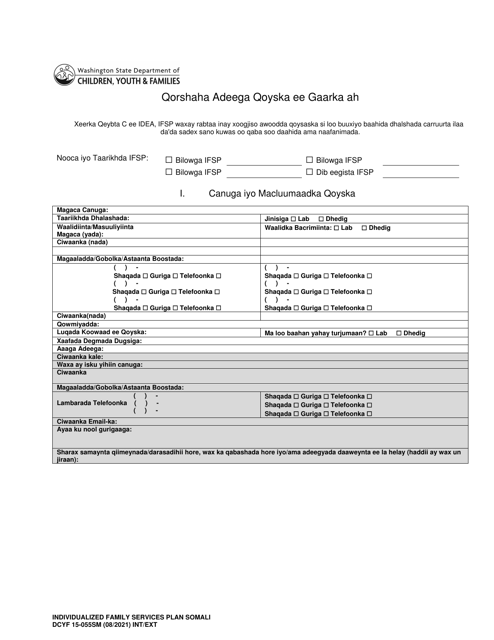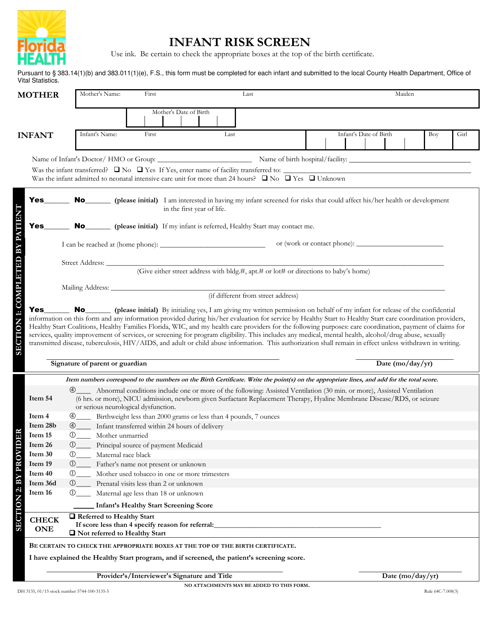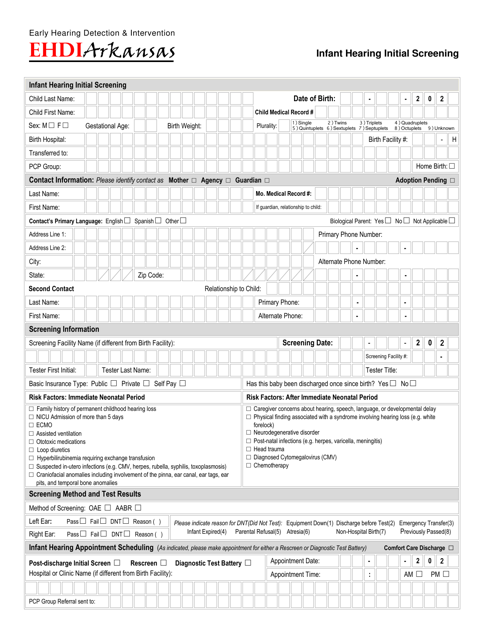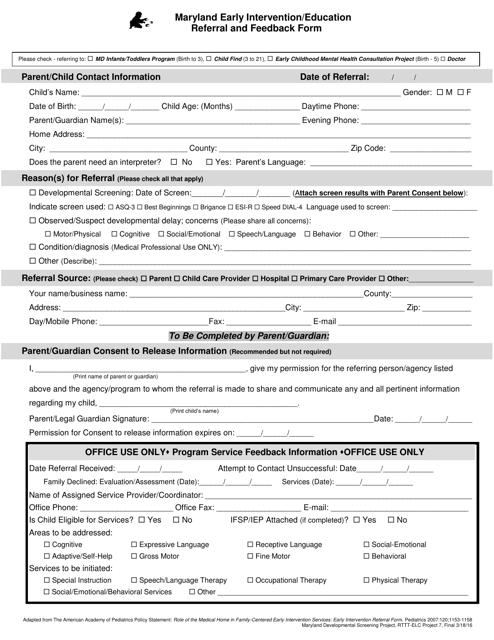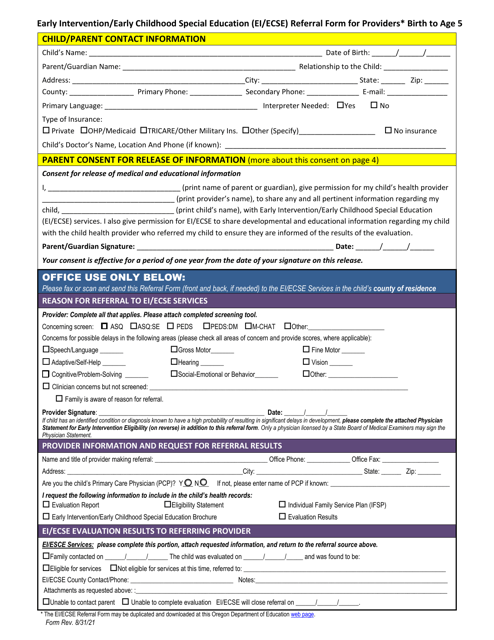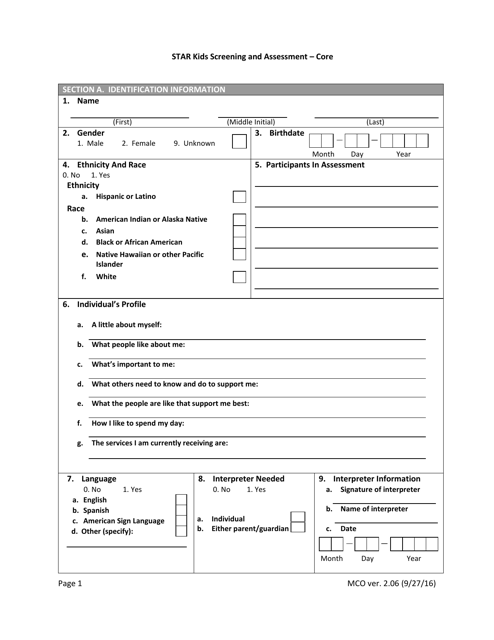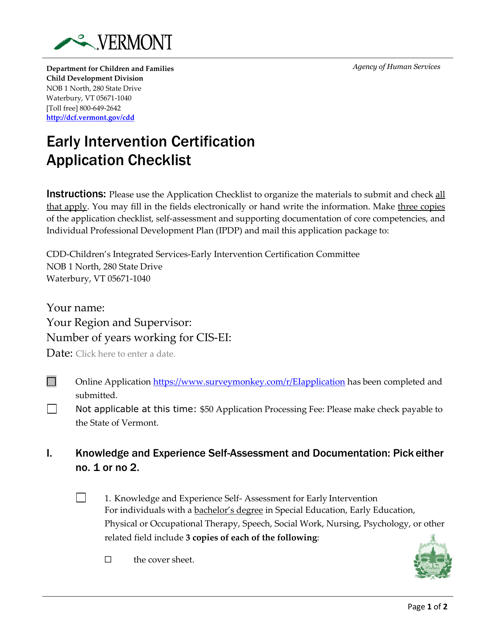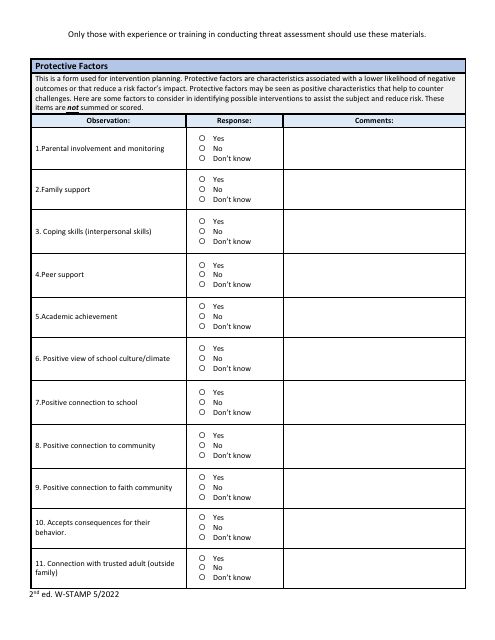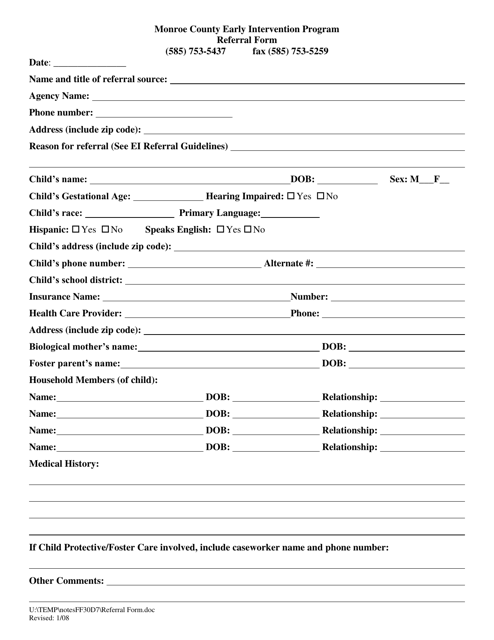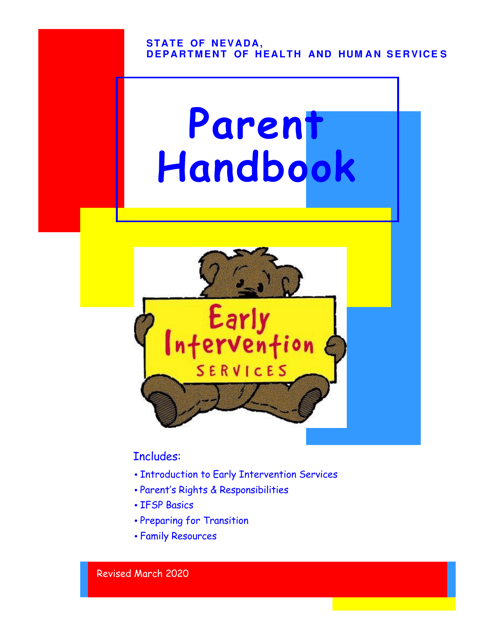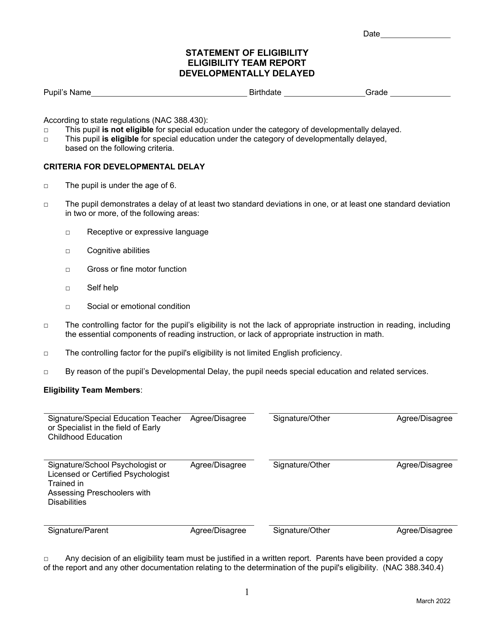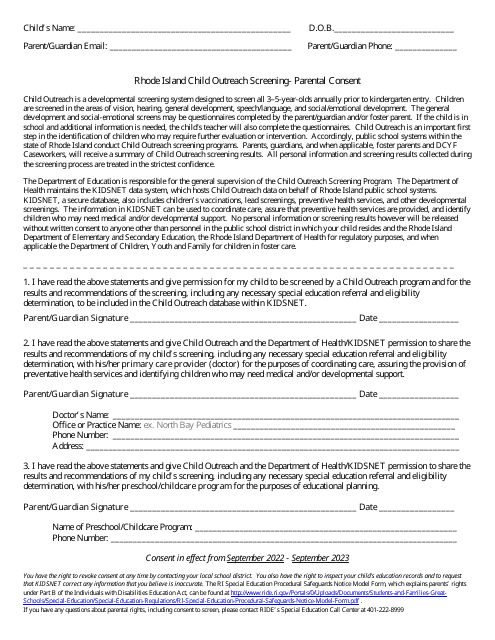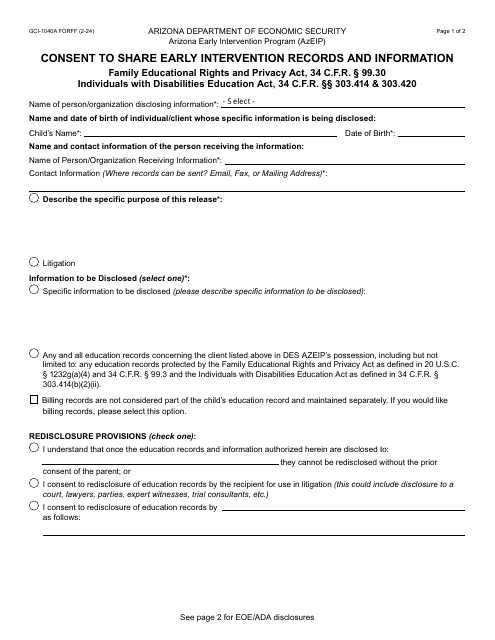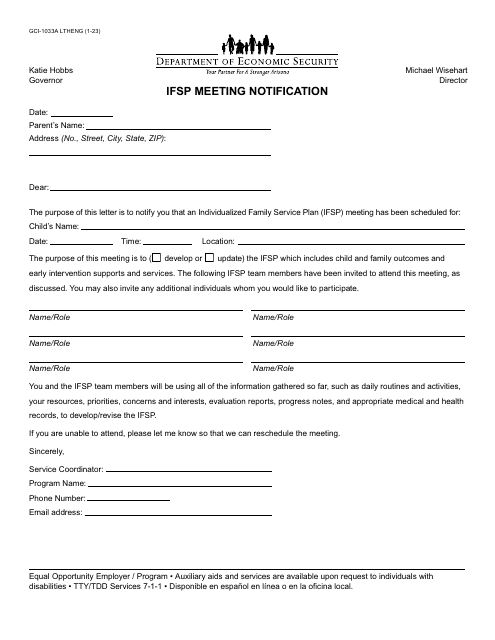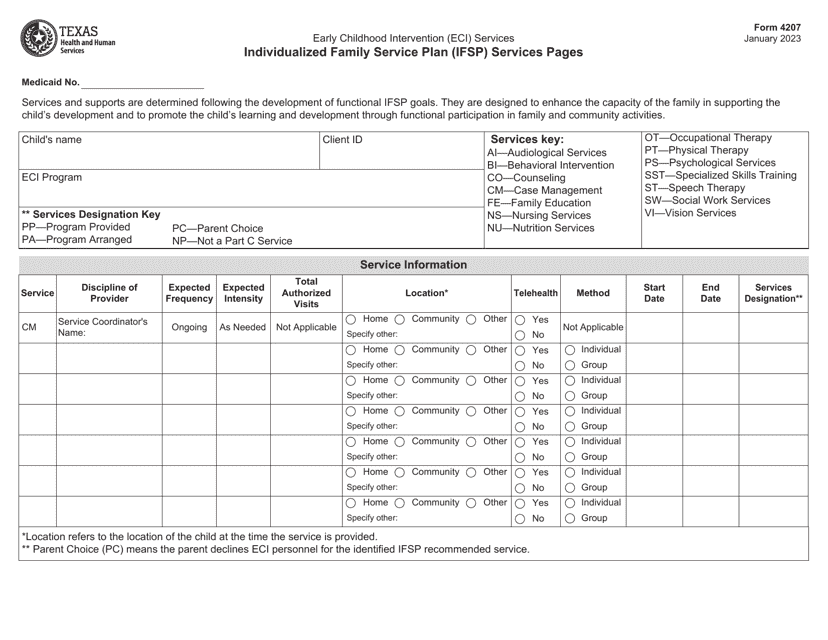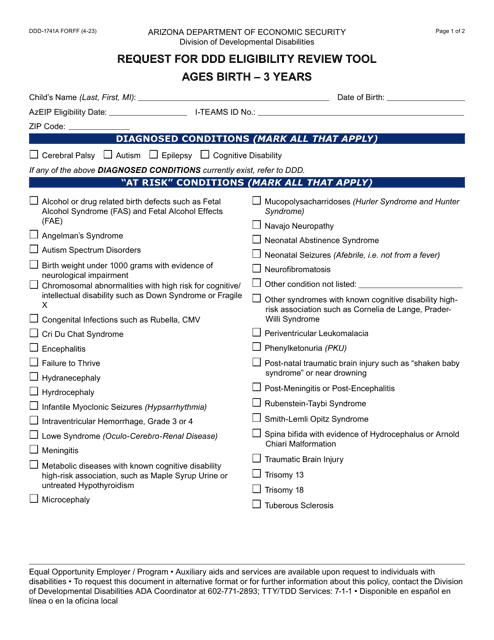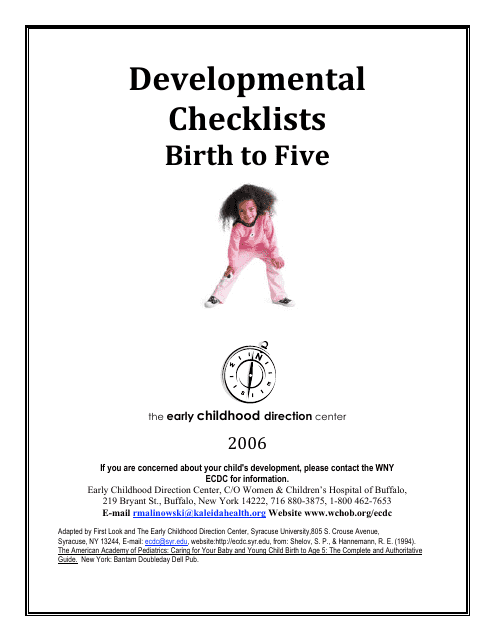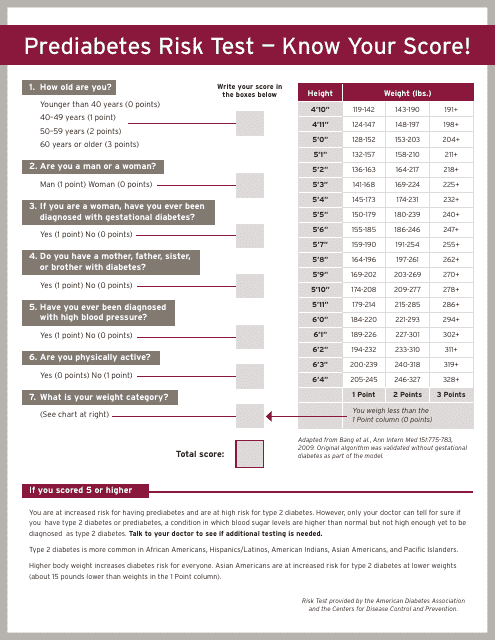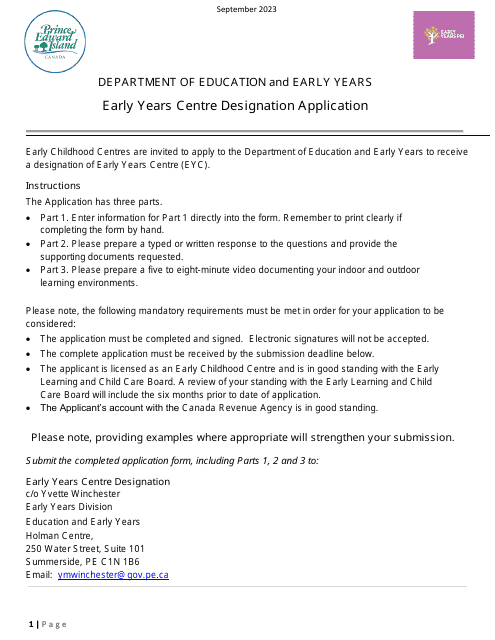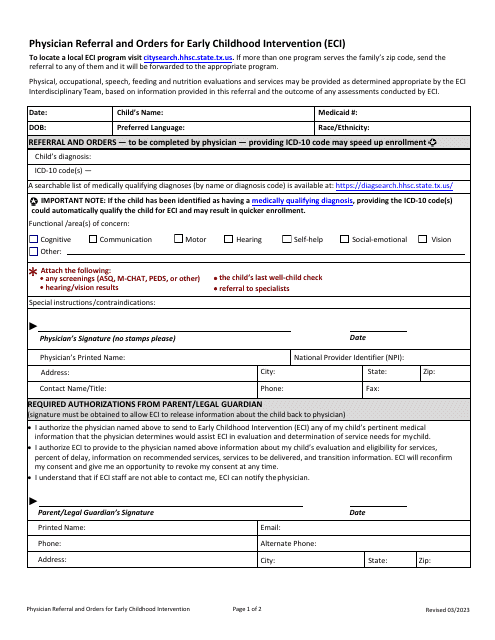Early Intervention Templates
Documents:
106
This document describes the transition process from early intervention to early childhood special education in Rhode Island. It provides information on how children and families can smoothly move from one program to the other.
This self-assessment form is used by early intervention providers in Utah to evaluate their own level of competence. It helps them identify areas of strength and areas that may need improvement in their work with children and families.
This form is used for the transition of preschool children from Part C to Part B in the state of Ohio. It facilitates the transfer of services and support for children with disabilities as they enter the school district.
This form is used for declining one or more early intervention services in Washington state. It is available in Punjabi.
This form is used for declining one or more early intervention services in Washington for Somali-speaking individuals.
This form is used in Florida to assess the potential risks to infants.
This form is used for the initial screening of hearing in infants in the state of Arkansas.
This Form is used for referring and providing feedback for early intervention and education services in Maryland.
This document is used for referring children to Early Intervention or Early Childhood Special Education (Ei/ECSE) programs in Oregon.
This document is used for screening and assessing the needs of children in Texas who may be eligible for special education services.
This document is a checklist for applying for an early intervention certification in Vermont. It includes the necessary steps and requirements for the application process.
This form is used for referring children in Monroe County, New York to the Early Intervention Program for their developmental needs.
This document is a handbook provided by the state of Nevada, which offers information and guidance to parents regarding early intervention services available for children with developmental delays or disabilities. It outlines the various programs, resources, and support services provided by the Nevada Early Intervention Services (NEIS).
This document is used for determining the eligibility of individuals with developmental delays in the state of Nevada.
This form is used for notifying parents of a child with a disability about an Individualized Family Service Plan (IFSP) meeting in the state of Arizona.
This form is used for requesting eligibility review for children between the ages of birth through 3 years in Arizona.
This document provides a series of developmental checklists from birth to five years old. It helps parents and caregivers monitor the growth, behavior, and skill acquisition of children, ensuring each developmental stage is reached appropriately.
This document is a tool used to assess an individual's risk of developing prediabetes, a condition that often precedes Type 2 Diabetes. It typically contains a series of questions related to health and lifestyle factors known to influence the likelihood of developing this condition.

